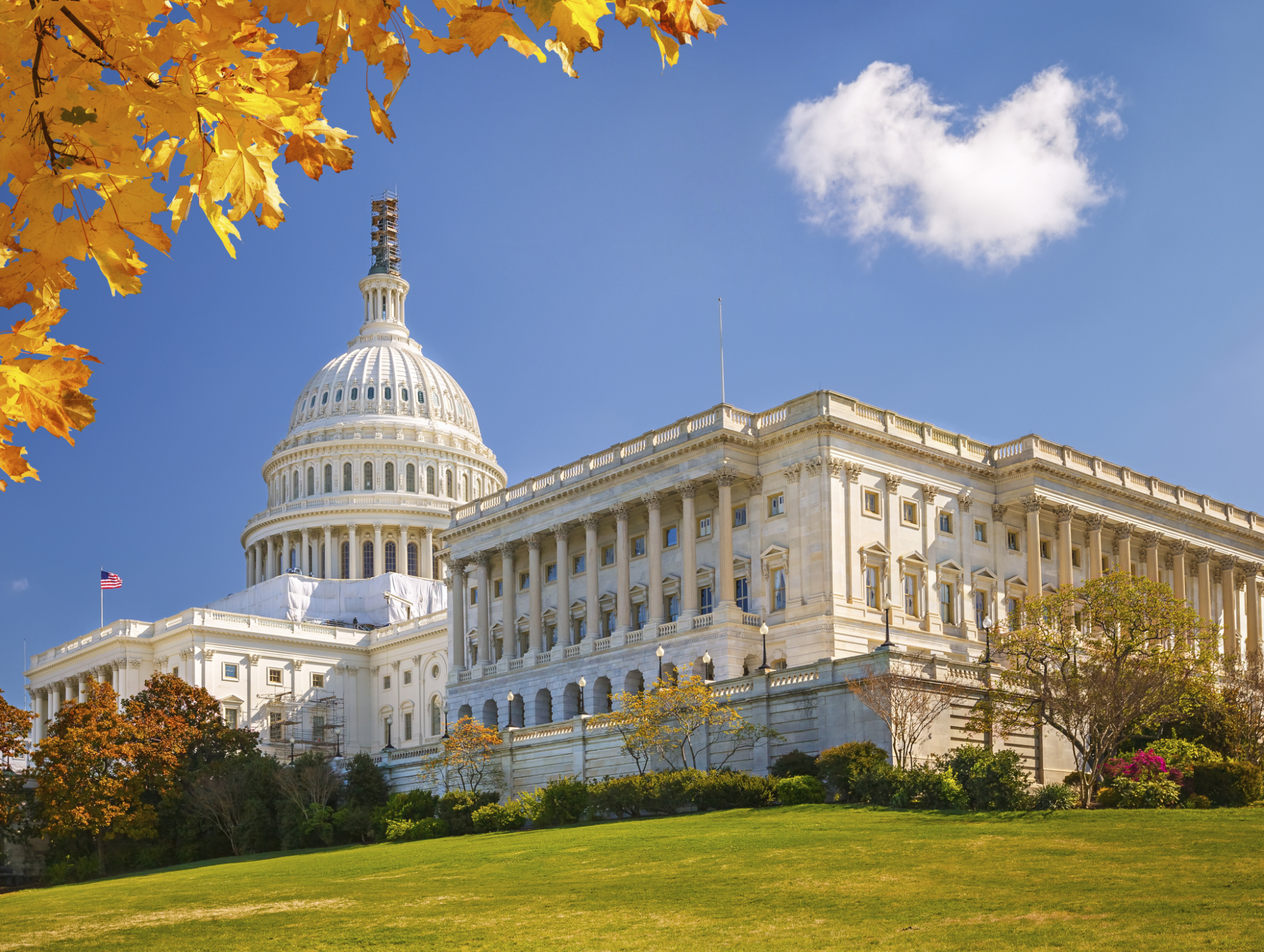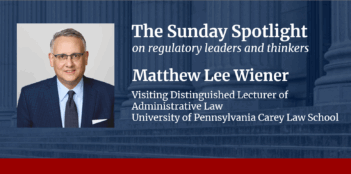
ACUS report addresses best practices for agency involvement in drafting legislation.
Members of Congress are not experts in everything. When preparing legislation in fields that require technical competence, they often call on relevant federal agencies for drafting assistance. Yet these requests can implicate separation of power concerns between the legislative and executive branches, forcing agency officials to walk a slippery slope in their response.
The Administrative Conference of the United States (ACUS), a federal agency dedicated to improving the work of other federal agencies, has taken up this issue and initiated a project to examine the role of agency officials in the legislative process. The project’s lead consultant, Christopher J. Walker, a professor at the Ohio State University Moritz College of Law, recently presented a draft report to ACUS recommending a series of best practices for agency legislative engagement.
Based on a series of interviews and survey responses from agency officials, Walker found that agencies generally responded to every request for drafting assistance that they received from Congress—“regardless of the political party affiliation of the requesting Member, the effect the legislation would have on the agency, [or] the likelihood of such legislation actually being enacted.” Responding to these requests can strengthen an agency’s relationship with Congress as well as ensure that new legislation remains compatible with the agency’s existing mission.
However, agencies do face problems when working with congressional requesters. Turnover of legislative staff and changes in party control of congressional committees diminishes the productivity of agency-Congress relationships and reduces congressional staff members’ knowledge of preexisting statutes and regulations, according to Walker’s report. In addition, agencies working with congressional requesters often must decipher whether the requesters want technical assistance or the agency’s position on the proposed legislation.
Official articulations of executive agency positions require preclearance by the Office of Management and Budget (OMB) in the White House. Written official statements on pending bills, draft bills that an agency wishes to present to Congress, and other legislative activities all require preclearance. At the same time, White House preclearance is not required for legislative language that agencies offer to congressional committees as a “drafting service” provided that the agency makes clear that the administration or agency is not bound to the position espoused in the drafted language.
But drawing the line between “drafting service” and other legislative efforts requiring preclearance is not always clear. Agencies perennially struggle with how to provide assistance requested without circumventing the OMB’s preclearance requirements. In his interviews, Walker found that most agency staff believe that “what congressional staffers really want is to know the agency’s substantive position on the proposed legislation.” Drawing the line between informal assistance and a formal position statement on a draft bill can put agencies in a difficult position.
To combat these problems and improve the technical drafting assistance process generally, Walker identified a number of intra-agency and extra-agency best practices. His study’s recommendations are currently being considered for adoption by ACUS as a whole.
One recommendation stresses the importance of keeping an agency’s legislative affairs staff “separate and distinct” from its legislative legal counsel. By keeping them separate, an agency can make day-to-day, politically sensitive decisions about Congress through its legislative affairs staff, while also providing non-partisan, expert assistance in the legislative process through its legislative counsel. Walker argues that this bifurcation can help alleviate—even if it does not completely eliminate—the slippery slope of agencies crossing the line into legislative work that requires preclearance.
Since technical drafting assistance can also occur without the involvement of legislative affairs staff or legislative counsel, Walker also recommends that agencies implement official policies and procedures to govern relationships with congressional staffers. Having official guidelines for agency employees to follow helps coordinate technical drafting assistance efforts across the agency and identify situations requiring OMB involvement.
Providing meaningful assistance without providing an official position requires meeting congressional requesters where they are. To that end, Walker highlights the U.S. Department of Housing and Urban Development’s practice of providing congressional requesters with so-called “Ramseyer/Cordon drafts.” These drafts serve as comparative analyses by redlining existing law to show the proposed legislation’s likely effect. This practice helps remind congressional requesters of existing law and to avoid unintended consequences.
Walker also explores other plans to strengthen agency-Congress relationships so that all parties can better anticipate potential problems and proactively address them. Such plans include facilitating face-to-face meetings to build trust, offering in-person educational programs to keep congressional staffers informed of agency operations and initiatives, as well as organizing temporary working opportunities in Congress for interested agency personnel. Walker believes that such experiences diffuse insider knowledge throughout congressional and agency circles.
ACUS recently held a committee meeting to discuss Walker’s report and his suggested recommendations. The next committee meeting will be held on October 22, 2015. ACUS is also currently accepting public comments on the report. Final consideration of Walker’s report and related recommendations is expected in December.



